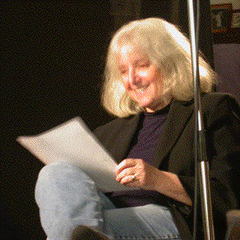For the past month or so I've been watching movies about Tibet, Tibetan Buddhism, and yoga. Perhaps its because I challenged myself late in October to run a fitness/yoga experiment, by practicing kundalini yoga every day. I've been successful thus far and it feels good, not earthshaking, but good. For those of you who don't know what kundalini yoga is, its considered the most "ancient" form of yoga that was entirely secret until an Indian named Yogi Bjahan brought it to the US in the 1970s with a plan to train teachers of kundalini yoga. Kundalini yoga focuses on the breath (which can be slow, or can be fast panting known as "breath of fire), chanting mantras, and positions that I at least find easier than the positions in many other types of yoga. This kind of yoga had never been seen except by the masters themselves, and the students of master practitioners. The first time I saw it was on a DVD by "Anna and Ravi" two famous kudalini yoga teachers/masters. I fell in love with it immediately which was a surprise because I had never liked all the other schools of yoga. I called this my "rock and roll yoga." I was however, sporadic in my practice until now, when I have successfully doing it for a half an hour or 45 minutes every day.
Last night I watched two movies about a huge event that take place in India every 12 years, a Hindu the Allahabad Kumbh Mela. In 2001, it was particularly important. Not only was it 12 years after the one before, but it was the last Kumbh Mela in a 12 year cycle, an event that occurs every 144 years. About 70 million people came to worship, many taking long pilgramages on foot from every corner of India and beyond. The Dalai Lama was there, Andy Weil was there, captured on the movies I watched. I have never seen anything quite like the Kumbh mela. At some point, a day marked to be the day everyone gets in the Ganges River, all 70 million head towards the Ganges to immerse themselves in the water. There is an overwhelming feeling of joy, conveyed by the participants as they splash in the river, some seeming to be engaged in an almost child-like water play. One group of well over 100 were yogis who have taken a vow to live out their lives completely naked; they ran en mass into the River.
Watching 70 million people --even on a DVD-- was a strange experience. I had never seen anything quite like it. The noise made by so many was like a background roar and almost deafening. When looking at the shots from higher up (I don't know if the filmmakers got these by helicopters, or there there were a few tall enough buildings) it appeared as if there were a massive ant colony swarming below. I had seen scenes of crowds in India, and it was that scene magnified by a million.
Everyone stayed in one or another encampment, all of which ran into each other, so from above it looked as if it were one long encampment centered in tents. Scenes of cooking included food being prepared in gargantuan pots, whatever it took to feed 70 million worshipers. Although the festival is a Hindu tradition, there were obviously Buddhist monks attending, along with tourists from various nationalities and ethnicities. Announcements were made by loudspeaker, though with the loud roar of 70 million people it was hard to imagine how anyone ever heard it. Clearly it did because one announcement called out to the people about a lost child, and then showed the mother and child being reunited. I would be surprised if there weren't many lost children, it was so vast and it seemed like people were literally body to body, like the subway in New York City at the worst rush hours. As I watched I thought if I ever attended the Kumbh Mela with my husband I would have us somehow tied together. To get out of there took a whole day of walking, or so someone who was followed through her experience there, reported to us, the viewers.
Both films did a remarkable job of capturing the Kumbh Mela, and I recommend them to everyone, to catch a glimpse of this extraordinary human experience. I wouldn't recommend one over the other; I think by watching both of them back to back, I got more of a picture of the Kumbh Mela. So try to rent #1) Kumbh Mela: The Songs of the River and 2) A Day in the Light. I don't know if they were particularly attractive to me, in the midst of this study of Tibetan Buddhism that I seem to be doing while getting myself to practice kundalini yoga every day, or if they would just be inherently fascinating to anyone, but you can always just give them a try.
Subscribe to:
Post Comments (Atom)


No comments:
Post a Comment